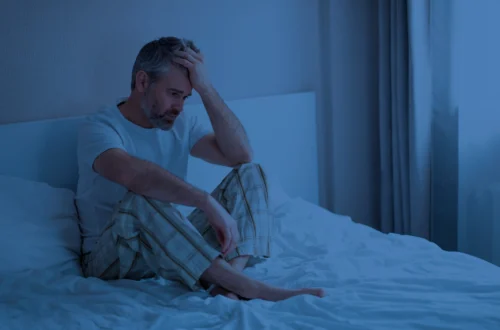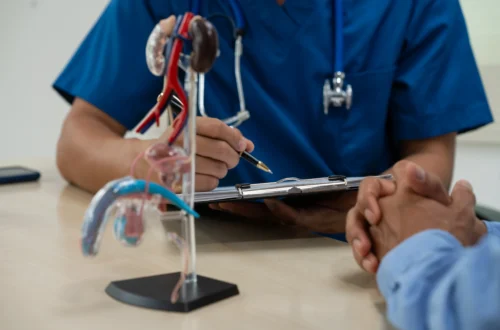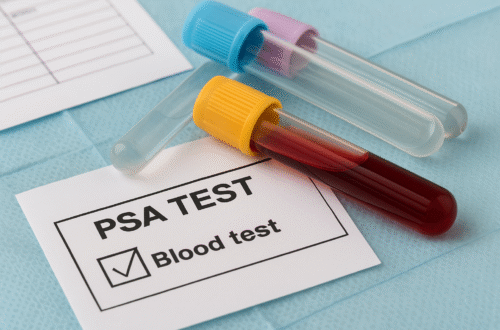Many men believe urinary problems and sexual difficulties are unrelated, but in my medical practice, I often see how closely they’re connected.
Benign prostatic hyperplasia (BPH) — also known as prostate enlargement — and erectile dysfunction (ED) share many of the same causes.
When one improves, the other often does too.
Why BPH and Erectile Dysfunction Often Occur Together
Both BPH and ED are influenced by aging, vascular health, hormones, and nerve function.
As men age, blood flow to the pelvic area tends to decrease.
The same circulatory issues that restrict blood flow to the penis can also cause prostate enlargement and urinary symptoms.
Hormonal changes — particularly lower testosterone and higher levels of inflammation — can further aggravate both conditions.
In addition, some medications prescribed for urinary symptoms may temporarily affect libido or ejaculation.
Medications and Natural Options That Can Help BPH and Erectile Dysfunction
One of the most effective medical treatments for erectile dysfunction — tadalafil (Cialis) — is also FDA-approved to relieve urinary symptoms caused by BPH.
It relaxes the smooth muscles in the prostate, bladder, and penile arteries, which helps urine flow more easily and increases penile blood flow at the same time.
However, before using medications that may cause side effects like headaches or low blood pressure, I usually recommend starting with natural compounds that act on similar pathways.
Nutrients such as zinc and L-arginine have shown great potential to support both prostate function and erectile quality, by helping regulate hormones and improve circulation naturally.
Among the natural approaches that combine circulation and hormone support, one method in particular has been drawing attention in recent studies for its dual action on prostate comfort and male vitality.
It’s explained in a short video presentation that breaks down how certain plant compounds can naturally relax the prostate, improve urinary flow, and restore confidence in intimacy — all backed by scientific research.
🩺 Click below to watch the educational video before it’s taken down — it’s one of the few that clearly explains how prostate and sexual health are connected.

Lifestyle Habits That Make a Difference
Simple daily habits can greatly enhance results:
- Maintain a healthy weight and exercise regularly
- Avoid smoking and limit alcohol
- Prioritize sleep and stress management
- Choose a diet rich in antioxidants, omega-3s, and plant-based foods
These small lifestyle improvements not only support prostate health but also help maintain overall energy and hormonal balance.
For more detailed advice, you can read my post on prostate health tips and daily prevention habits — where I share practical ways to protect long-term urinary and sexual function.
When to Seek Medical Advice
Persistent symptoms — such as weak urine flow, difficulty starting urination, or loss of erection quality — should always be evaluated by a healthcare provider.
A medical assessment can identify whether the problem is vascular, hormonal, or prostate-related and guide the most appropriate treatment plan.





